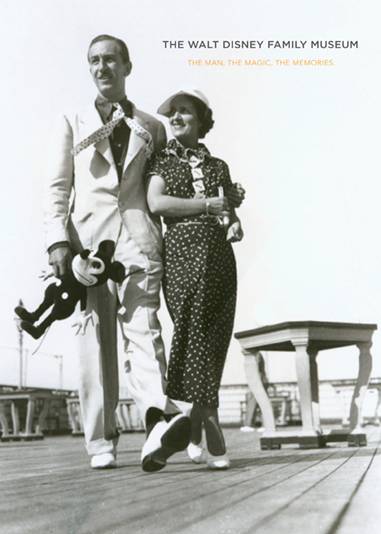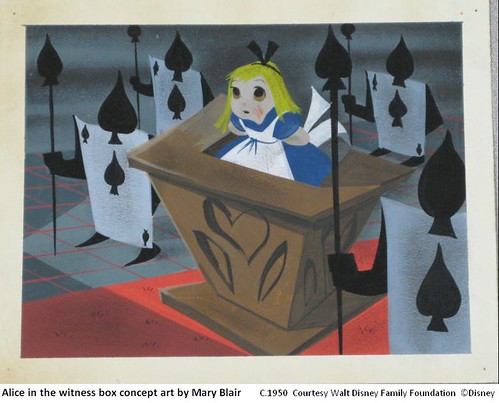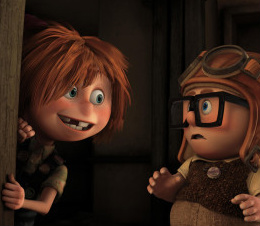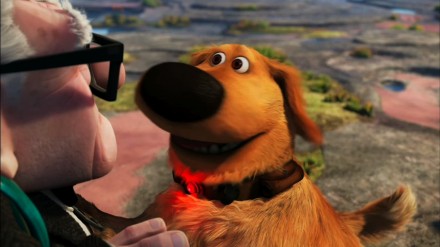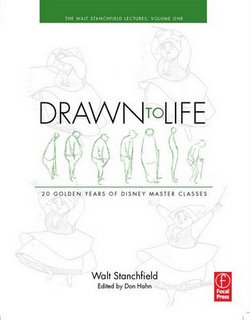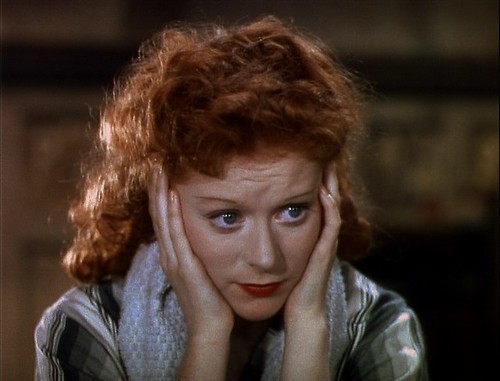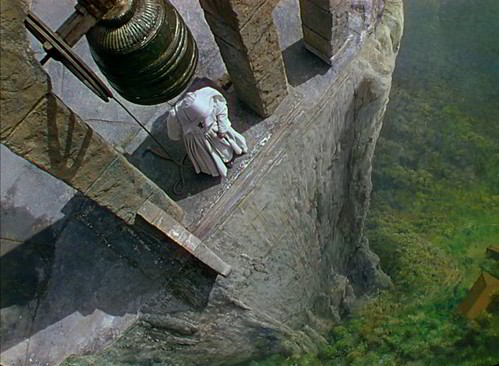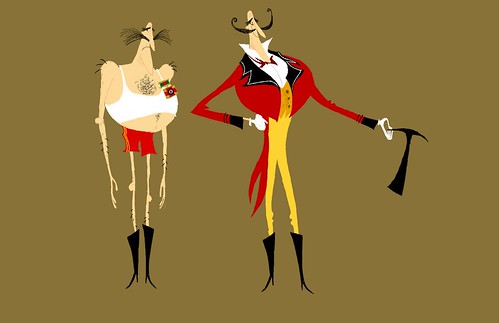
"If you want to make a movie for children then make a movie for children. The experience for a parent or guardian is that they are spending time with their children at their child's level. The movie is not meant to satisfy an adult in the audience. You do not have to consider adults when creating content or story lines for "childrens" movies. Far to often mature content is blended into scripts only to promote the feature as "something for all to see". The marketing of this movie was selfishly aimed at drawing young children to the theatre. You call it "PG" but then you market it for a younger audience. Creating many 6, 7, 8 ,9 and 10 yr old Birthday parties/gatherings when this content is way too deep for them to handle and or enjoy. Pixar...Step back and really think about what you product is saying and who will be watching and effected by it. Two thumbs down from Daughter and Dad."
— ke flannigan, boston
-
from the New York Times readers' responses to Manohla Dargis' review of "Up"I finally saw "Up" last weekend, and I mean to write some of my first impressions in a future post. I'd avoided most of the reviews, wanting to see the film with as little baggage as possible, so I had to go back to see what was said about it including its review in the New York Times. Ms. Dargis' take was mostly positive, I think-albeit with some slightly schizophrenic and vague caveats. Her piece seemed possibly edited down.
What really caught my eye was the "Reader's Review" that I quoted above--a comment posted underneath the online version of Ms. Dargis' review. I thought it would be a good springboard for writing a bit about "Up" in particular and all animated films more generally.
So about the comment of "ke": what he writes is simply
wrong.
Now, I'm of the opinion that very few if any
reactions to a film are ever wrong. How could they be? All artistic experiences are subjective; one person's honest impression is as valid as another's, really, as far as it goes.
Obviously there are plenty of riders on that subjectivity: one person simply might have what I'd call better taste (more subjectivity at work there): they might be more educated about films, more experienced in life, awake, more receptive, generally appreciative of art and/or craftsmanship in all its forms(this can lead to a negative as well as a positive reaction, by the way). Another might have life experiences that drastically affect his or her judgement of a film, whether it's "The Sorrow and the Pity" they're watching or "Duck Soup".
All this might seem obvious, but I've read reviews from professionals that I admire-Andrew Sarris, Pauline Kael, et al-where once in a while they seem-to me at least-to be oblivious to some pretty extreme personal biases. But the bottom line whether professional or paying audience member is that each is entitled to their own opinion--it's the nature of the art.
In the comment above "ke" is taking another tack entirely. He's dead certain that the filmmakers of "Up" have made a cardinal error by misunderstanding who their audience is--children. He's actually dead wrong. Because children as some separate group are
not who the film was made for. Certainly it was hoped they'd be part of the audience. Absolutely the reactions of children mattered to the crew, whether they happen to be parents themselves or not.
But so do the reactions of the dads in the audience--and the moms, teenagers, older people, and any other permutation.
All of them make up the imagined audience. Yet even then, without forgetting or dismissing them, they aren't who the films are made
for, it's who they are shown
to--hopefully with the result of entertainment.
I'm going out on a bit of a limb here because I don't work at Pixar, I haven't spoken to the people who worked on this about it, and to date I haven't read any interviews specifically about its production. But I'm still sure I'm right.
"Up" was made
for the same people it was made
by. That isn't accusing the artists of solipsism-the inability to look beyond one's nose. It's about telling a story with a with a
personal meaning, a personal intent. When you start with that, you-and eventually your coworkers-are the litmus test for whether your idea communicates. You know what you want to do, and then you proceed to do your best--everyone pitching in--to accomplish it.
Contrary to some reports Pixar's method isn't really a special secret, magic trick or rocket science. It also isn't easy. I'm sure sometimes it doesn't turn out films exactly as originally imagined. But it stems from individual imaginations: someone with an idea they're totally committed to doing. Other artists are brought on immediately to work on it if it's a go; they too put their stamp, their spin, their characters and their ideas into the mix. The film story usually begins to change, veering one way, then the other. There are peaks and valleys aplenty in the long years of production. There always are. I haven't read of any animated feature production anywhere that was entirely smooth sailing in the story process (well, maybe "Gulliver's Travels" at Fleischer's in 1938-enough said). So with all that work involved over a period of years, there has to be, hopefully, someone at the helm who knows what they want and why it should be there. To say a film is aimed "at children' is too vague, broad and vast a goal. But to please the child, young adult and grownup that the director has inside him or her is not only doable, it's imperative. Certainly the head of a production seeks out other eyes and ears and opinions, but the buck has to to stop somewhere and someone needs to know what the point of it all is.
It's long been a monkey on the backs of both animation lovers and professionals that "cartoons" have been so firmly fixed in many people's minds as primarily directed at children--often, small children. With every non-kid animation watershed in our generation--Roger Rabbit, Ren & Stimpy, The Simpsons, Beauty and the Beast, Shrek, anything produced by Tim Burton, anything written and directed by Brad Bird--it's been hoped that the old cliches about "animation is really the domain of wee ones" would finally be busted wide open--or at least dropped by the critics who really should know better by now.
But weirdly, with all those successes and very un-totlike films' releases--even with a studio or two whose entire output is well-known and successful for more adult oriented comedies--it still hasn't happened, and each time a film is released there are always too many writers who scratch their heads about why on earth something
not specifically focused on preschoolers found its way into an animated film.
They forgot, if they ever knew, that even the very first, most famous commercial animated feature had adult thrills, action, and moments of beauty that were aimed at everyone: the grand premiere of "Snow White" had virtually no children present at all (exceptions being perhaps Shirley Temple, or Wallace Beery or Eddie Cantor taking a daughter). No, the stamping, shrieking, laughing and applauding audience was made up of all of the
adult producers, directors and actors of Hollywood--everyone from Zanuck to Dietrich. A film made by adults, for adults-and for everyone else who could enjoy it, whatever their age. Why has this been so completely forgotten? Why is it a forgetting that recurs over and over again?
The agenda or template "ke" thinks Pixar
should be following is a harrowing one. I've read enough to know that not everyone in animation fandom is pleased with "Up", but I can't believe that
anyone, no matter what their take, would believe the answer is Pixar gearing their features for small children.
Why is this father so annoyed that the filmmakers of "Up"--a fable about an elderly man at the end of his life that includes a little boy but has much more, plainly, to do with the elderly man--didn't aim it at a "child's level" in any case? Which world does his daughter live in? Does it have old people and adults in it? Has his little girl ever felt sorry for someone(or herself), or had any sort of loss--even if it was only, say, a balloon she let go of? Does she like to play pretend? Does she like animals and stories?
If the answer to any of those questions is "yes" than she's got a lot in common with the filmmakers, and she's just as much a part of the potential audience as "ke".
Or "jl" for that matter.















